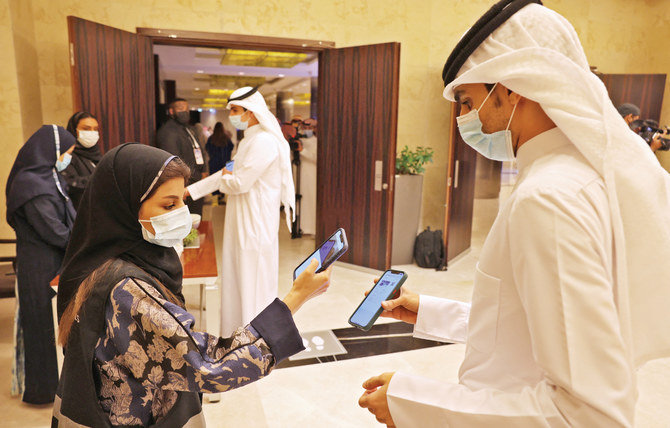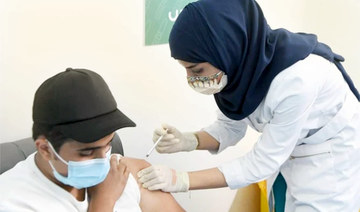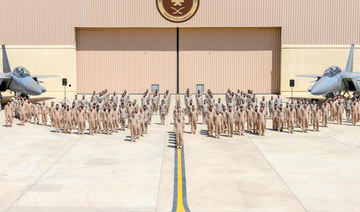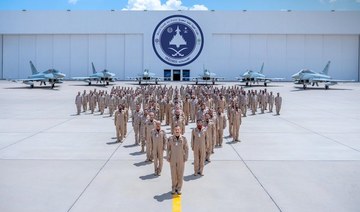JEDDAH: Vaccines are key to increasing immunity against COVID-19 variants, even in those who had recovered from the disease, the Ministry of Health said Sunday.
Ministry spokesman Dr. Mohammed Al-Abd Al-Ali began his regular press conference by clearing up the misconception that those who had recovered from COVID-19 could rely on the immunity gained from their initial infection.
“Given the current situation and the circulating variants, especially the delta variant, receiving a dose of the vaccine post-recovery provides a higher efficacy rate and a longer-lasting effect, higher protection from variants, decreases the chance of a secondary infection by more than half and provides better protection for the community,” he told the media.
He said it was important that recovered patients head to the nearest vaccine center to complete their vaccination program as they were not restricted by a time frame.
Appointments can be made through the Sehhaty app.
Saudi Arabia on Sunday reported a further 59 COVID-19 cases, raising the total number of infections to 547,591 since the start of the pandemic.
It said there were 41 more recoveries, increasing this total to 536,626, while a further two coronavirus-related deaths pushed the death toll up to 8,745.
There are currently 2,220 active cases, 139 of which are in critical care.
Riyadh had 22 new cases, Jeddah had eight, while Makkah and Madinah had four new cases each.
There were 41,093 PCR tests carried out in the past 24 hours, raising the total number conducted to more than 29.3 million since the start of the pandemic.
More than 43.5 million vaccine doses have been administered in the Kingdom since the beginning of the rollout last December, with 23.6 million people vaccinated so far.
More are expected to complete their program as the country is clamping down and imposing stricter measures for entering public and private establishments.
More than 56 percent of the Kingdom’s population is fully immunized.
Saudi Arabia’s Transport General Authority spokesman, Saleh Ibrahim Al-Zuwayed, said at the same press conference that 90,720 field inspections had been carried out with just 145 violations reported last month.
He added that more than 750,000 people used different forms of transport in the Kingdom and that the authority, through its inspections of buses, taxis, trains, ferries and others, was ensuring all passengers and crew had completed their immunization course and were wearing masks at all times. The authority was also ensuring there was no more than 50 percent capacity and that social distancing was being adhered to.
Authorities have heightened efforts to monitor compliance with health and safety measures aimed at preventing the spread of the disease.


























